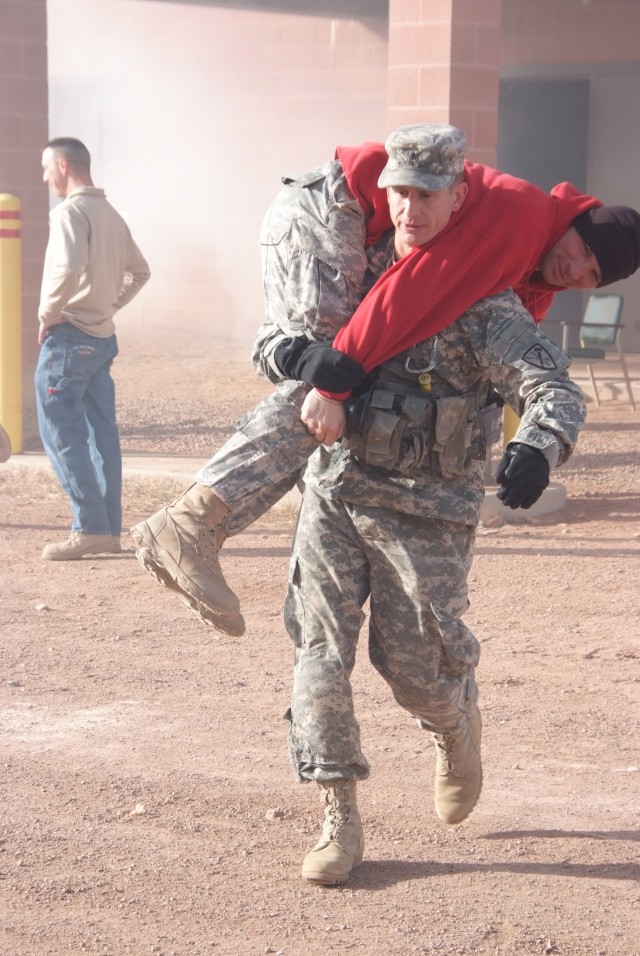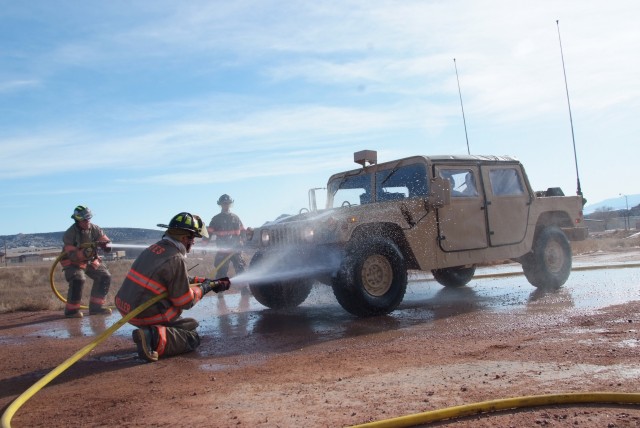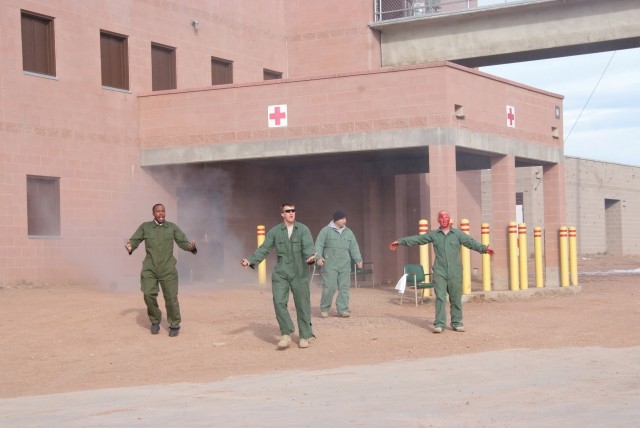FORT CARSON, Colo. - Preparing to respond to nuclear, biological or chemical attacks, and any natural disasters that may occur throughout North America, the 110th Military Police Company, 759th MP Battalion, recently held special training at Range 150.
This training gives the MPs the capability of deploying anywhere within the continental United States and Canada or other U.S. territories where the disasters might occur.
Master Sgt. Robert Goodenow, 110th MP operations sergeant, said military members typically do not train for this type of operation.
"What we're training for is prompt community response force," he said. "Our Soldiers need to be prepared to be responding to an area that has been struck by a major disaster."
A major disaster can be anything from a terrorist attack to a Category 5 hurricane, and the Soldiers must be ready for any situation that arises at a moment's notice, he said.
The intention is to put the Soldiers through a variety of challenges to prepare them for any scenario they might face.
"This type of training isn't normal military training," said Goodenow. "They have to use their interpersonal skills and attend (to) the people's needs, and understand what the people's needs are, in order to get the group to calm down."
He went on to say the big challenge is changing the Soldiers' mentality from going to war, since this would be about supporting civilian authorities as a type of humanitarian aid mission.
Spc. Eric Price, team leader, felt much was gained from the experience, especially after returning from a war zone where Soldiers were constantly facing danger and stress levels were always high.
"From the exercises we have just gotten a better understanding of the difference between dealing with civilians in America, compared to dealing with them in Iraq, since we are just coming off deployment," he said. "It's a big difference, and for us it is an adjustment; we learned a lot."
Under normal circumstances, the Soldiers will not carry weapons since they will be helping civilians, unless a situation warrants the need for protection due to perceived threats.
"They will be dealing with ... civilians that have been displaced, that are possibly injured, disoriented. Something similar to what you would have seen in Hurricane Katrina where you have a lot of people displaced, the water sources have been disrupted, they don't have food, electricity, things like that," said Goodenow.
One scenario had looters stealing supplies from a local hospital following a disaster. If the situation had happened on a military installation, the MPs could legally hold and arrest those responsible for stealing items, he said. However, off post, their roles become much different.
"We're used to performing in the law enforcement capacity," said 2nd Lt. Joshua Garvens, platoon leader. "We can't do that here. So when we come and people are stealing things from the hospital, we're used to being able to run up and stop it. Here, we have to run up, observe it, call the police department from the local populace, have them come and report to them what we saw, and let them deal with it. So it is just a much different experience for us."
Still, there is a bit of leeway if the condition calls for security immediately, such as with a life-threatening situation.
"If it is something that we can't wait for local law enforcement to intervene, we would intervene to help save lives. But if we have the time, we call local law enforcement," said Price. "We let them deal with it. We're just here to provide aid for whoever needs it."
Other scenarios ranged from a small nuclear detonation to a shooting-and-hostage situation at a local school. The Soldiers had to prepare for anything, from offering food and clean water, to basic first aid and information to community members affected by the various situations.






Social Sharing